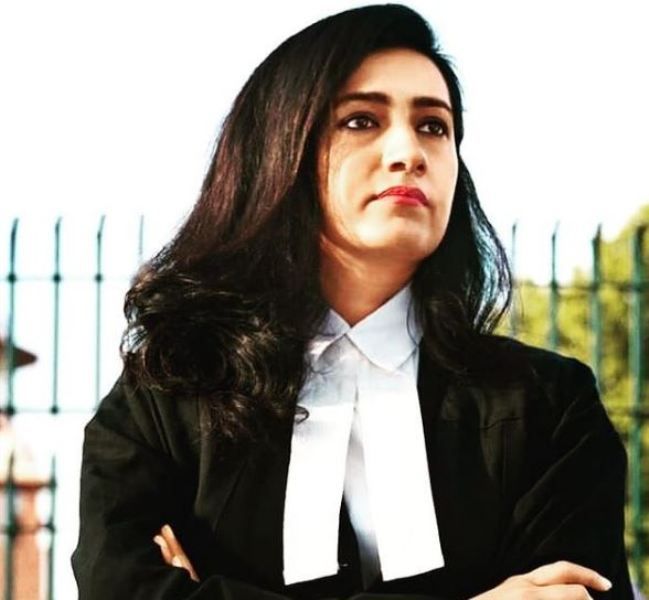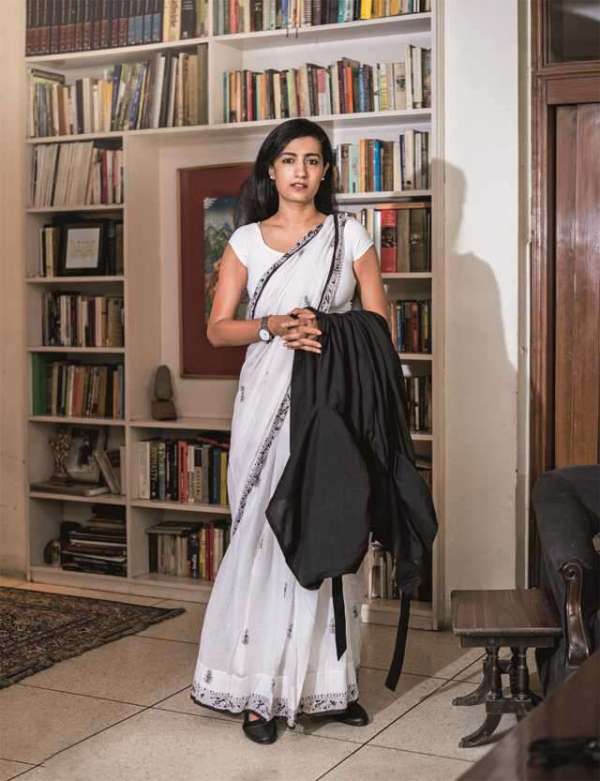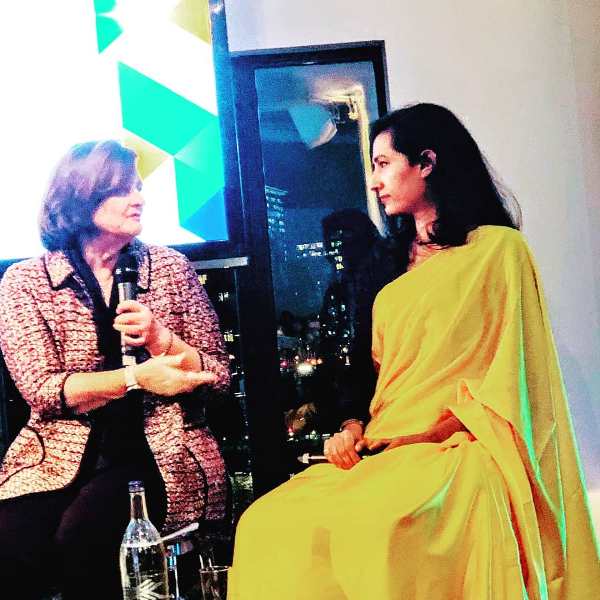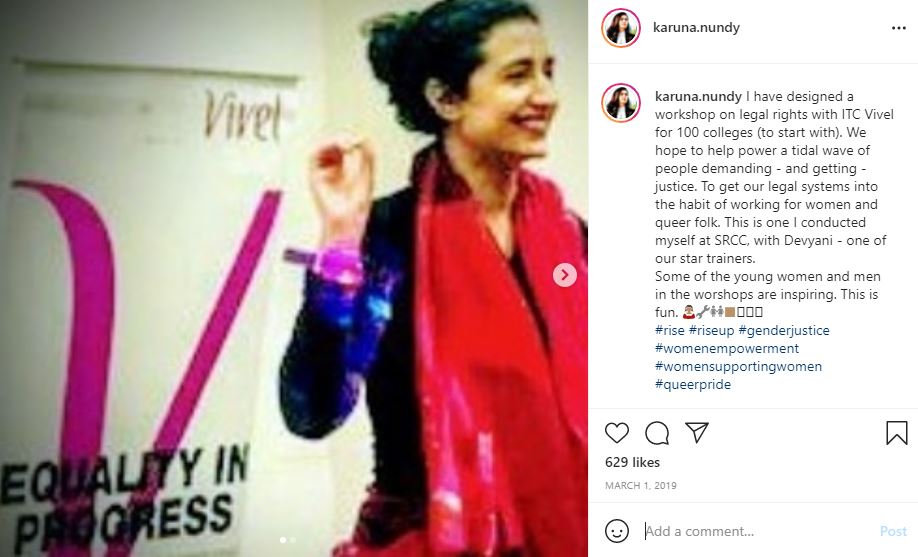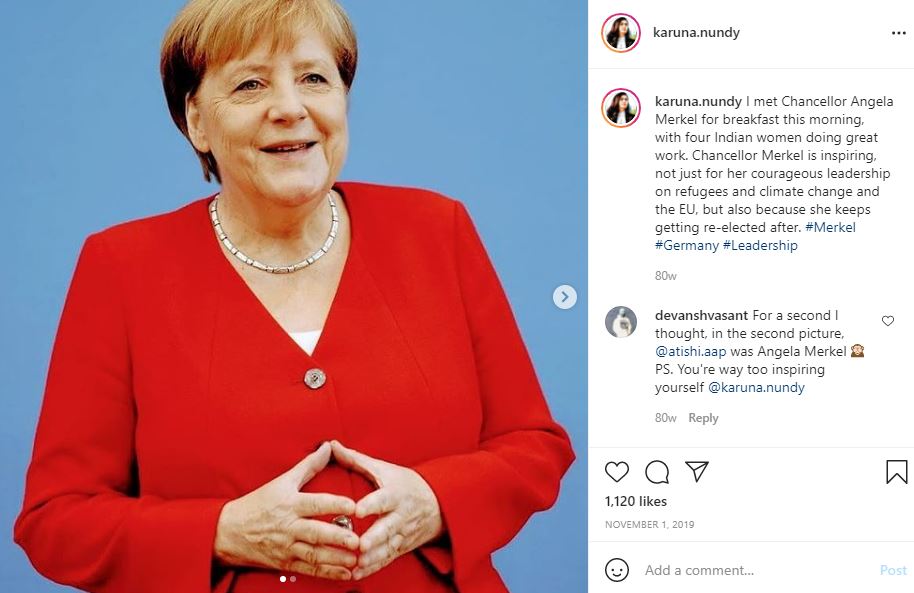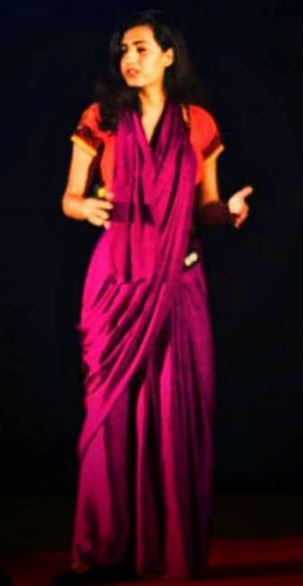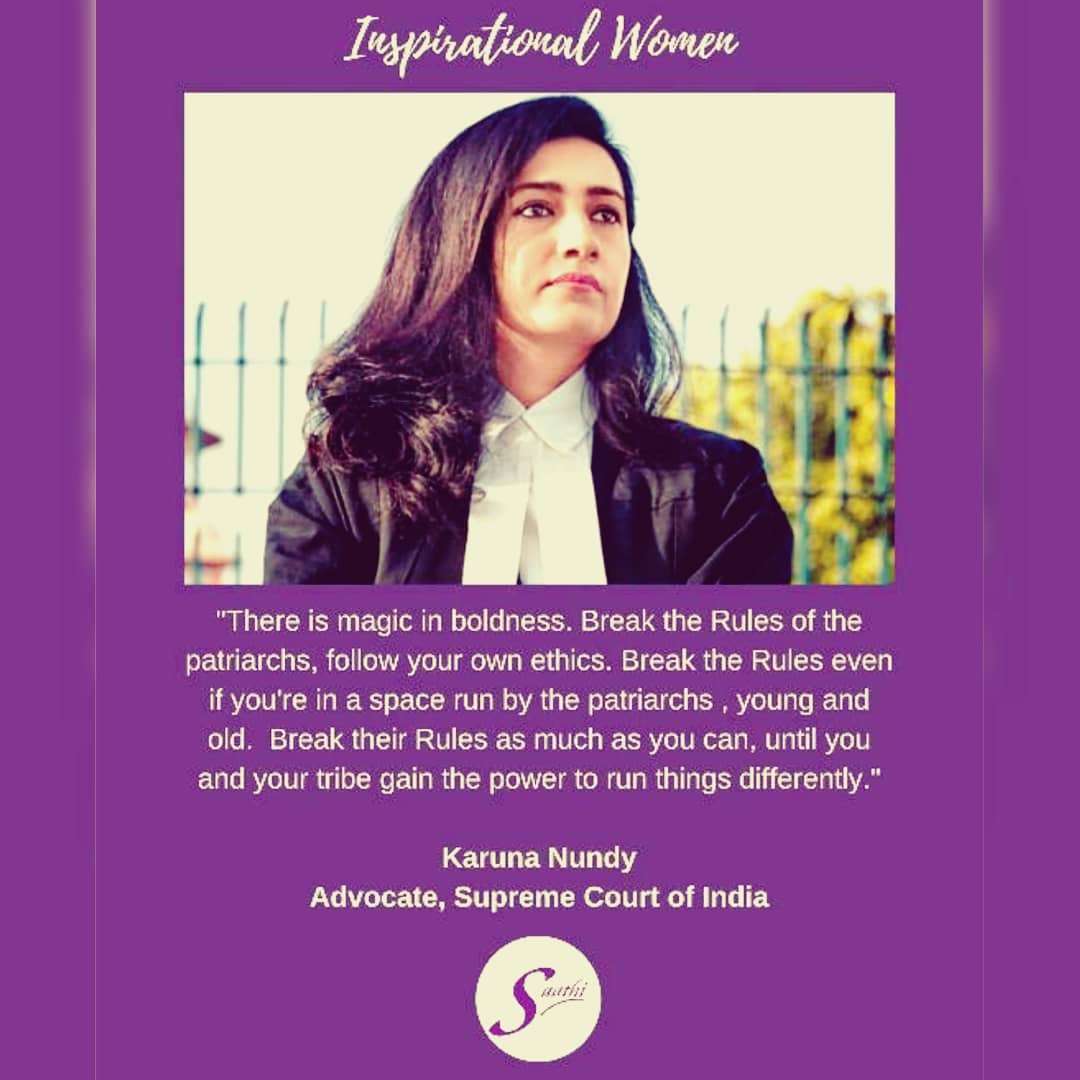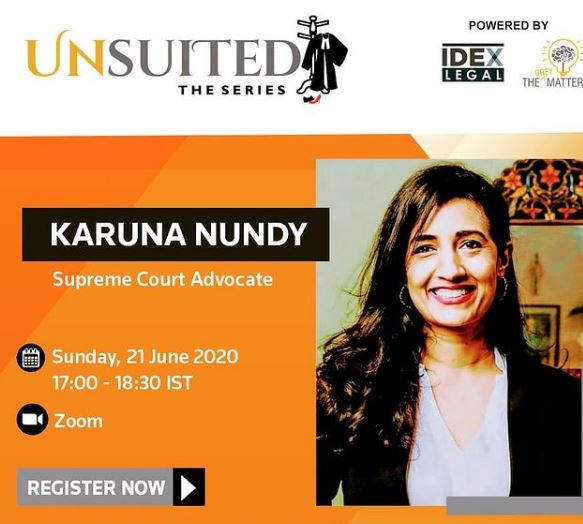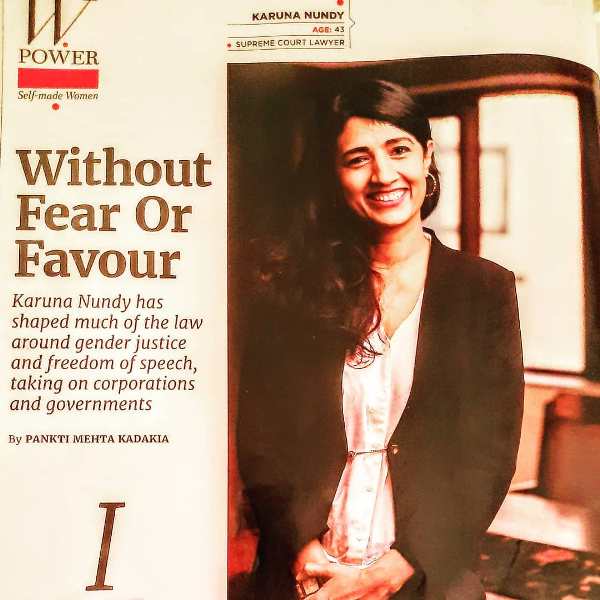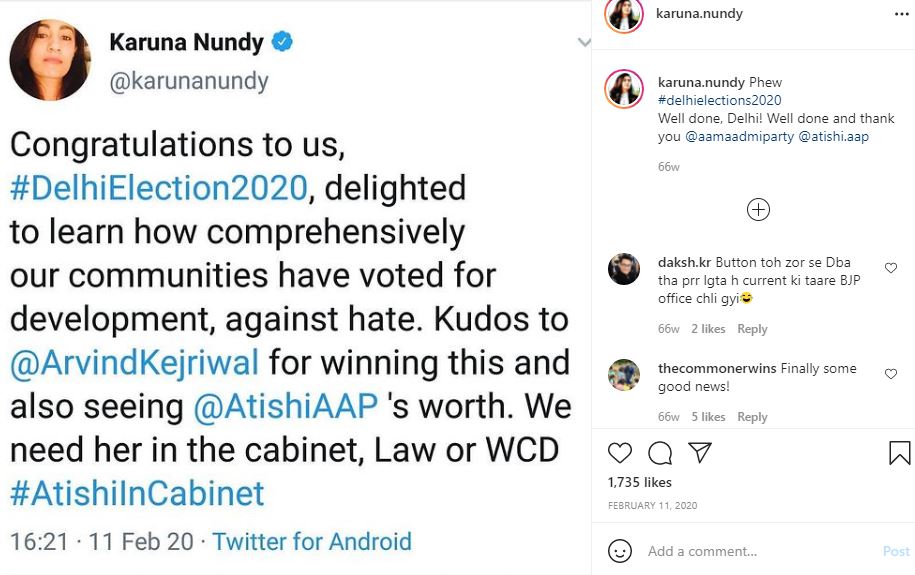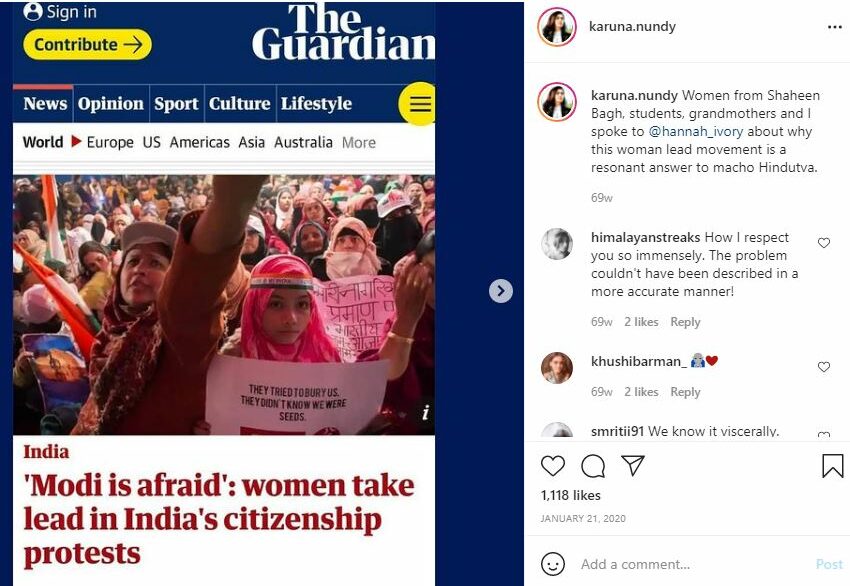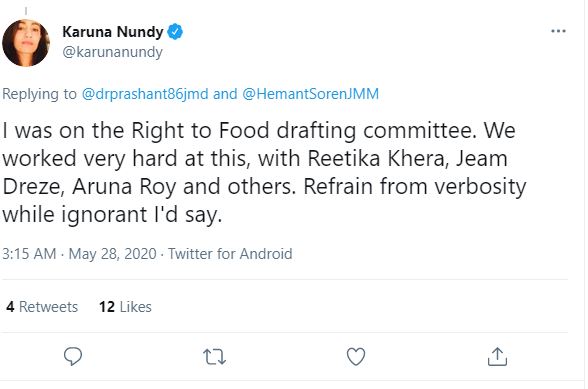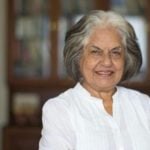Karuna Nundy Age, Boyfriend, Husband, Family, Biography & More
| Bio/Wiki | |
|---|---|
| Profession | Lawyer |
| Famous For | Working for human rights and contributing to India's anti-rape bill, which followed the 2012 Delhi gangrape case |
| Physical Stats & More | |
| Eye Colour | Black |
| Hair Colour | Black |
| Career | |
| Awards, Honours, Achievements | • At Cambridge University, she was rewarded with Emmeline Pankhurst Prize, the Amy Cohen Awards, and the Becker Studentship, 2000. • She was awarded a Columbia full-time fellowship at Columbia University in 2001. • Economic Times jury cited her as 'famous in the corporate world for her expertise in commercial law' in 2017. • She received Femina award for the contribution in respective fields in 2017. 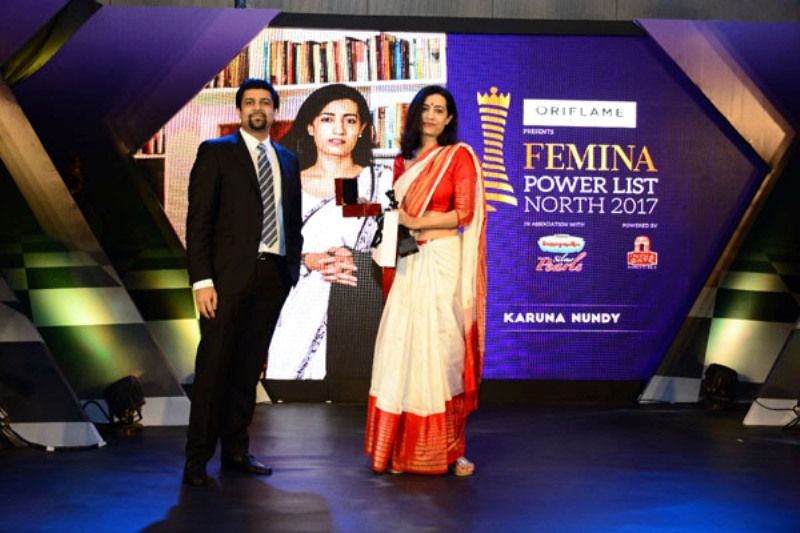 • In 2020, Forbes Magazine named Karuna on their list of "Self Made Women 2020." |
| Personal Life | |
| Date of Birth | 4 January 1976 (Sunday) |
| Age (as of 2021) | 45 Years |
| Birthplace | Bhopal |
| Zodiac sign | Capricorn |
| Nationality | Indian |
| Hometown | Bhopal |
| College/University | • St. Stephen’s College, Delhi University, India • Cambridge University, England • Columbia University, New York, US |
| Educational Qualification(s) | • She has done BA(Hons) in Economics from St.Stephen’s College, Delhi University, India (1993-1997) • She has completed BA, MA (Law) from Cambridge University, England (1997-2000) • She did LL.M at Columbia University, New York (2000-2001) [1]Karuna Nundy's LinkedIn Profile |
| Political Inclination | Aam Aadmi Party 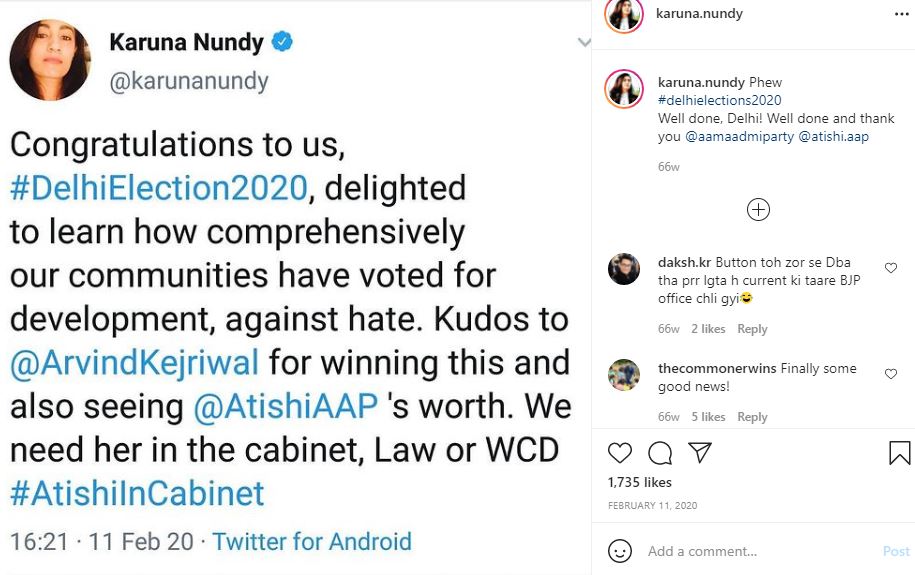 |
| Family | |
| Parents | Father- Name Not Known Mother- Mita Nundy 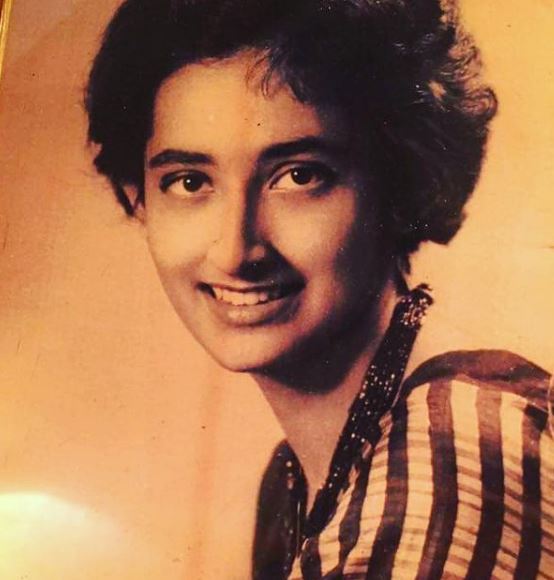 |
| Husband | Not Known |
| Marital status | Not Known |
| Favourite Things | |
| Language | Sanskrit |
Some Lesser Known Facts About Karuna Nundy
-
Karuna Nundy is an Indian Lawyer at the Supreme Court of India. Her work is mainly focused on constitutional law, commercial litigation and arbitration, media law, and legal policy. Nundy has served as a lawyer in the United Nations, International Tribunals, and New York. It is mentioned by the Times of India (an Indian English-language daily newspaper) that Karuna has been related as one of three feminists who are directing a new wave for the upliftment of Indian women, along with Arundhati Roy and Vrinda Grover. Mint (an Indian financial daily newspaper published by HT Media) called Karuna an “Agent of Change” and Forbes magazine represented Nundy as a “Mind that Matters.”
- After completing studies at St. Stephen’s College, Delhi University, Karuna worked as a TV journalist for a short time. In an interview, Nundy said that she was particular about returning to India after completing her Law studies in the US because she wanted to make a huge contribution through her legal work. She said,
Growing up in a society with both extreme poverty and riches, I realised early on how unfair life was. Certain things that happened in my childhood—molesters just grabbing you on the streets, an incident in my school where the principal went into victim-blame mode—made me think about how I could bring about change and gain the power to fix things most effectively.”
- In an interview with the Huffington Post (an American news aggregator and blog), Karuna stated that as a lawyer, she wanted to contribute to the human rights work in India and as a general lawyer. She mentioned,
I felt that here is where I could make the biggest contribution—not just in human rights work, but also as a general lawyer. I felt this is where the need was. I have a visceral understanding of these various layers [here], in terms of language, in terms of nuance, and information…It is also a court of ideas, as much as it is a court of facts. It has been quite a leader when it comes to economic and social rights.”
- Karuna was dedicatedly involved in providing justice for the 1984 Bhopal gas tragedy victims. She contributed to the major commercial legal policies and human rights litigation in India. Kruna challenged the governmental and corporate nexus during the Bhopal gas tragedy case, which was a difficult task due to increased corruption, by demanding safe drinking water for the people in these affected areas. She wanted to fragment chemical-filled groundwater with safe drinking water to these areas. She also fought to provide better healthcare and medical facilities for poor people.
- In 2013, in an interview, when Nundy was asked about her international experiences, she said she worked in drafting the interim constitution of Nepal, which specifically included women and children’s rights. She added that she had participated in many workshops with the senate of Pakistan on legislating constitutional rights. She said,
My international experience includes commercial arbitrations and bilateral investment treaty work as well as constitutional work. I helped draft parts of the interim constitution of Nepal, where we specifically included women’s and children’s rights, conducted workshops with the senate of Pakistan on legislating constitutional rights, and worked with the government of Bhutan on compliance with international treaties.”
- In 2013, in a conversation with a media person, Nundy revealed the gender justice done in the Indian constitution by Dr. B.R. Ambedkar while drafting the constitution of India, which was predominantly framed by upper-caste and upper-class men of Indian society. She added that Article 14 spoke about the equality of all people before the law. She said,
Our Constitution was framed predominantly by upper-caste, upper-class men, but the main architect of that Constitution—brilliant Dr B.R. Ambedkar—was in many ways a man who understood gender justice, and had a good handle on substantive and formal equality. So we have Article 14 which speaks about equality of all people before law, but there is also Article 15, which recognizes that the playing field is not level and says that nothing will come in the way of making special provisions for women and children.”
- In 2013, a major turning point in Karuna Nundy’s life happened when she was dedicatedly engaged with laws dealing with anti-rape bills and sexual harassment of women in India. She participated in the Nirbhaya Rape Case- a horrific incident that gained a rage both within India and across the globe. Karuna was consulted during the preparation of the Verma Committee Report, to review India’s Anti-Rape Laws that were earlier established by the government of India. Initially, the report had not gained much success but in 2013 it was a victory to the efforts in passing the Criminal Law (Amendment)2 Act, 2013– “the anti-rape bill.”
- In 2015, in the case of Shreya Singhal v. Union of India, Nundy fought on behalf of the People’s Union for Civil Liberties (PUCL), an NGO that defends civil liberties and human rights in India, and brought down the section 66A of the Information Technology, 2000 (that dealt with issues of freedom of speech and censorship).
- In 2016, Nundy fought for Jeeja Ghosh in the case against SpiceJet Airlines. The client of Karuna, Ms. Ghosh, had cerebral palsy and boarded a flight from Kolkata to Goa. She was asked to leave the flight by the airline staff because she didn’t see well, and they didn’t want her condition to worsen. She sued the airline in the Supreme Court and claimed that the airline treated differently-abled passengers badly. The Supreme Court fined the airline to pay Rs. 10 lakh to Jeeja Ghosh and ordered SpiceJet to instruct its staff on the needs and treatment of such passengers.
- In January 2017, by an Economic Times jury, Karuna Nundy was included in a list of ‘Corporate India’s Fastest Rising Women Leaders.’ It cited Karuna as being ‘famous in the corporate world for her expertise in commercial law.’
- In 2017, Karuna Nandy said that criminalizing the instant Triple Talaq in Muslims was against the freedom of speech in India. She said,
Saying Talaq Talaq Talaq is same as saying – Mein apko divorce de raha hoon. In such a situation, are you going to criminalize that? How can that be criminal? Isn’t that against free speech ? Since marriage is valid only when adults are involved, and since that makes child marriages void ab initio, that child marriages shouldn’t be criminalized?”
- In April 2018, in an interview, Karuna explained how she chose Law as a profession. She said that she chose the cases, keeping in mind, that must have a long-term effect on Indian society, and also admitted that she loved the law as a profession. She stated that her clients were not just clients, they played the role of partners in her cases.
- In 2018, at the 20th Beti FLO GR8 Awards, Karuna spoke for the upliftment of women in India and how to fight for women’s rights, at J W Marriott Hotel, Juhu, Mumbai.
- In 2019, Karuna won the global Trust law Award in London.
- In March 2019, Nundy designed a workshop on legal rights with ITC Vivel for 100 colleges.
- In November 2019, Karuna Nundy met German chancellor Angela Merkel during her two-day visit to India. In an interview, Karuna said that Angela Merkel inspired her a lot. She further added that Angela’s courageous leadership had encouraged everyone.
- Many interactive programs, talk shows, and discussion shows share Karuna Nundy’s experience on social media which basically spread awareness about women’s upliftment in India and upholds the value and dignity of basic rights.
- Karuna Nundy often involves herself in constitutional work as well as commercial arbitration and bilateral investment treaty work while fighting for the rights of women in India.
- Karuna has featured in many special issues of various renowned magazines and tabloids with her achievements as a lawyer.
- In March 2020, in an interview with a magazine on International Women’s Day, Karuna requested all citizens of India to take a pledge to work throughout the year for the welfare of women in India and fight to end women violence in India. She said,
All people, pledge to work all year ’round against the violence, disrespect and barriers hat persist against women. Within us and without. Bit by ugly bit. Let’s pledge to stand by the citizenship of Muslim women, to help rebuild their lives, to end the structural oppression of Bahujan women, to include disabled women.”
- In 2020, Karuna openly supported the victory of Arvind Kejriwal and his renowned Aam Aadmi Party in Delhi elections through one of her social media posts.
- In 2020, Karuna Nundy supported the protest against the CAA [The Citizenship Amendment Act (Bill)] bill at Shaheen Bagh in Delhi.
- Karuna Nundy is a dog lover. She often posts pictures of her pet dog on her social media accounts.
- In an interview, on fighting for civil rights, Karuna was asked what kind of form of Government she preferred and believed then Ms. Nundy replied that she believed in democracy only. She quoted,
I’m a great believer in deliberative democracy; where you speak, but you also listen. You come through the other side with differences intact, but you also come through together in important ways.”
- In 2020, Karuna Nundy participated to support media freedom led by Lord David Neuberger and Amal Clooney in a UK panel, in England. [2]Femina India
- In March 2020, Karuna Nundy worked on the ‘Right to Food’ drafting committee with Reetika Khera, Jeam Dreze, and Aruna Roy.
- Reportedly, Karuna Nundy’s father had worked at Harvard Medical School (Medical school in Boston, Massachusetts). In India, he worked at AIIMS but soon he left the job as he wanted to work at a public hospital in India. Karuna’s mother, Mita Nundy, the winner of a history prize in the London School of Economics, established the ‘Spastics Society of Northern India’ after learning that Karuna’s cousin was born with cerebral palsy (a congenital disorder of movement, muscle tone, or posture).
- In October 2020, in an interview with NDTV, Karuna Nundy spoke on the ‘Cancel Culture’ law that she wanted to promote in India and she added her views against the motion of culture in Indian society and stated that the boycott of so-called culture will help us to get our independence. She said that the history of boycotts has a resonance in India.
- Karuna Nundy represents AIB in its various controversial cases. [3]All India Bakchod
References/Sources:

